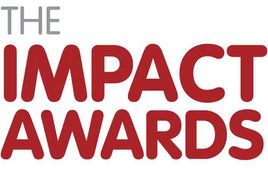
Research Ethics Quiz
Time to toss out the dunce cap and proudly adorn your thinking cap – if you get all of the answers correct, you will win a prize. Good luck and happy ethics!
Latest research and knowledge exchange news at Bournemouth University

Research Ethics Quiz
Time to toss out the dunce cap and proudly adorn your thinking cap – if you get all of the answers correct, you will win a prize. Good luck and happy ethics!
 Strand Three – post-award training
Strand Three – post-award training
How to apply
The Grants Academy will officially launch on Monday, 2nd April. Details about how to apply will be posted on the Research Blog on Monday. Watch this space if you’re interested in joining the Academy.
Want to find out more?
If you would like to find out more please contact Caroline O’Kane
 The European Commission has initiated a survey to evaluate and assess the future of the Science in Society Actions Programme.
The European Commission has initiated a survey to evaluate and assess the future of the Science in Society Actions Programme.
The study aims to find out what kind of achievements the programme has made so far, and which direction it should take in the future. Science and Society Actions promotes public awareness of science, gender equality and ethical discourse about research. The survey can be taken until 9 April, and the results will be made available in August this year.
I authored a paper with colleagues from the General Engineering (Unit of Assessment 15), including Prof. M. Hadfield, Dr. B. Thomas, S. Martinez Noya, and our research sponsors Mr. I. Hensaw (Energetix Group PLC) and Mr. S. Austen (RNLI). The publication is titled “Future Perspectives on Sustainable Tribology” and was submitted to Renewable and Sustainable Energy Reviews Journal. It has recently been accepted (22 Feb 2012) for publication. The article is the result of a two-month support for impact (REF) exercise which took place last summer (June-July 2011) and was sponsored by the Research Development Unit (R&KEO) of Bournemouth University.
The interesting fact about the article is that the particular journal of Renewable and Sustainable Energy Reviews has an impact factor of 5.367 (last five years) and is 9th out of 2009 Engineering Journals Worldwide (according to 2011 impact factor rankings) while its overall Ranking Worldwide among any Journal Indexed on Scopus is 268 out of 18854 Journals.
I would like to post this success on the Research Blog in order to show that support for impact at least in my case was worthwhile as it triggered my interest to write this “impact” paper with colleagues from Sustainable Design Research Centre (SDRC). The paper highlights the future perspectives of Sustainable Tribology by examining the economic, environmental and social impact of three tribological case studies worldwide. Each case study highlights one aspect of a number of ongoing interlinking research strands developed by the SDRC at Bournemouth University. The importance of Environmental Engineering through Sustainable Tribology solutions in our epoch is emphasized, showing that sustainability can be achieved to a significant extent through effective sustainable and environmental friendly engineering solutions, stimulating sustainable development and providing stability to our world embracing an anthropocentric and viable growth to our societies through effective sustainable solutions (figure 1).
 To conclude, I would like to thank all the co-authors for their valuable help and contribution to the specific article while I would also like to express my regards to Prof. Mark Hadfield for the position he offered to me as a research assistant for REF support during that period and for his valuable guidance. I strongly believe it was a really beneficial project for myself as well as for Bournemouth University.
To conclude, I would like to thank all the co-authors for their valuable help and contribution to the specific article while I would also like to express my regards to Prof. Mark Hadfield for the position he offered to me as a research assistant for REF support during that period and for his valuable guidance. I strongly believe it was a really beneficial project for myself as well as for Bournemouth University.
 Support to Video on Demand and Digital Cinema Distribution:The Video on Demand and Digital Cinema Distribution scheme constitutes one of the ways in which the MEDIA 2007 programme ensures that the latest technologies and trends are incorporated into the business practices of beneficiaries of the programme.The main objective of this scheme is to support the creation and exploitation of catalogues of European works to be distributed digitally across borders to a wider audience and/or to cinema exhibitors through advanced distribution services, integrating where necessary digital security systems in order to protect online content. The deadline is June 25th.
Support to Video on Demand and Digital Cinema Distribution:The Video on Demand and Digital Cinema Distribution scheme constitutes one of the ways in which the MEDIA 2007 programme ensures that the latest technologies and trends are incorporated into the business practices of beneficiaries of the programme.The main objective of this scheme is to support the creation and exploitation of catalogues of European works to be distributed digitally across borders to a wider audience and/or to cinema exhibitors through advanced distribution services, integrating where necessary digital security systems in order to protect online content. The deadline is June 25th.
Support for the implementation of Pilot Projects: The programme may support Pilot Projects to ensure that it adapts to market developments, with a particular emphasis on the introduction and utilisation of information and communication technologies. The deadline is June 18th.
Interesting and insightful blogpost on the three dimensions (pillars) of sustainability, challenging the simplicity of the model and highlighting how little attention is given to social sustianability. Makes a lot of sense: the ‘economy’ is after all a social construction which benefits humankind; the environment is made better or worse for/by human beings. And yet the ‘social’ is so often given little attention in the discourse.
 Todays post will tell you all about Strand Two of the Grants Academy.
Todays post will tell you all about Strand Two of the Grants Academy.
Strand Two: Bespoke training and development programme
Want to find out more?
If you would like to find out more please contact Caroline O’Kane
Tomorrow: learn about Strand Three (post-award training).
 The call for applications to run events for the tenth annual Economic and Social Research Council’s (ESRC) Festival of Social Science is now open.
The call for applications to run events for the tenth annual Economic and Social Research Council’s (ESRC) Festival of Social Science is now open.
This year the festival will run from 3-10 November. There are two types of application form available to download from www.esrcfestival.ac.uk:
The Festival welcomes applications for events which target a non-academic audience including young people, third sector, the public, business or government. The guidelines around the aims of the Festival and how to apply are in the Application Guidelines under Organise an Event. Please note that organisations external to the ESRC are welcome to apply for support and to participate in the Festival.
The ESRC Festival of Social Science is a celebration of the social sciences. It began life in 2003 as Social Science Week – a collection of around 25 events, mainly seminars aimed towards an academic audience. Over the years Social Science Week has grown to a much larger and more inclusive ‘festival’ of activities, aimed at policymakers, business, the public and young people alike.
In 2011 an estimated 17,500 people attended over 130 different events across the UK. The variety of activities included public debates, secondary school level events, film screenings, theatrical performances, and hands on events. Interactive activities included exploring technologies around transport past, present and future; woodland walks; sharing memories and showing how research influences fashion and design.
The Festival of Social Science is a key element of the ESRC’s science in society strategy and its commitment to promoting awareness of UK social science research to new audiences.
The 2012 Festival will run in the Autumn, from 3 to 10 November and will continue to promote how social science has a role in all of our lives.
This is an excellent opportunity to increase the visibility of your research outside of academia and fits well with BU2018, our commitment to public engagement, and our concept of Fusion.
If you are interested in being involved please let Julie Northam know as soon as possible and the RDU will support you with your application.
 It is exactly one year today since the Research Blog was launched at Bournemouth University!
It is exactly one year today since the Research Blog was launched at Bournemouth University!
Our first post was on the excellent RNLI slipways research undertaken in DEC by Prof Mark Hadfield and Dr Ben Thomas (read the story here). Since then there have been 957 posts added to the Blog, many of which were posted by academic colleagues from across BU. The Blog currently has 366 subscribers to the Daily Digest email.
To celebrate we’re inviting all staff at BU to get more involved with the Blog to make it more exciting, interactive, collaborative and beneficial to academic staff. There are a number of ways you can get involved:
The Research Blog is unique in the sector and in its first year of existence it has been a huge success in improving research communications at BU.
Be part of something cool and get more involved in the Blog! ![]()
Happy 1 year birthday, Research Blog!
 The second of our posts on the new Grants Academy is all about Strand One.
The second of our posts on the new Grants Academy is all about Strand One.
What is Strand One?
This is the BU-wide development and training programme linked to grant writing support in the form of access to a pool of contracted external bid advisors.
Intensive training
Strand One of the Grants Academy will be an intensive training programme run over two consecutive days, held off campus. Academics must attend both full days in order to join the Grants Academy. The sessions will be delivered by an external facilitator with support from the Research Development Unit.
Attendees will be required to come to the session with a draft proposal that they consider to be ready to submit for external funding (including CV). Each attendee will swap his/her proposal with another attendee on day one and will be required to read their colleague’s proposal before the second day when there will be a mock peer review panel where attendees will be required to lead a discussion on the proposal they have reviewed, taking into account everything they have learned the day before.
All participants of the Grants Academy will be required to work on a proposal after the session, using the resources and support listed below, and to submit this proposal for external funding within six months of completing the training programme. They may remain part of the Academy for a maximum of 18 months during which time they will be expected to have submitted a minimum of three external bids.
Extra training and resources for Academy members
Completion of Strand One will result in individuals becoming members of the Grants Academy; as members they would be able to access additional training and development resources including:
The support listed above will only be available to those academics who have completed Strand One of the Grants Academy.
Want to find out more?
If you would like to find out more please contact Caroline O’Kane
On the blog tomorrow, we’ll be telling you all about Strands Two and Three.
The application process will be launched on Monday, 2nd April 2012.
 A few weeks ago I attende an event to discuss the EC’s Creative Europe proposal, which could be the successor to the MEDIA Programme. which looks like it will have a whopping €1.8 billion budget for 2014-2020. Notes from the event can be found on our I drive I:\CRKT\Public\RDU\Media Programme and feature an outline of the proposal for Creative Europe, key stats and figures, what topics will be covered and key questions raised on the day.
A few weeks ago I attende an event to discuss the EC’s Creative Europe proposal, which could be the successor to the MEDIA Programme. which looks like it will have a whopping €1.8 billion budget for 2014-2020. Notes from the event can be found on our I drive I:\CRKT\Public\RDU\Media Programme and feature an outline of the proposal for Creative Europe, key stats and figures, what topics will be covered and key questions raised on the day.
 The deadline for entries to the Praxis Unico Impact Awards 2012 has been extended to Thursday 5 April 2012!
The deadline for entries to the Praxis Unico Impact Awards 2012 has been extended to Thursday 5 April 2012!
You can read more about the awards here: http://blogs.bournemouth.ac.uk/research/2012/03/23/praxis-unico-impact-awards-2012/
If you are interested in submitting to the Impact Awards then let us know and we will support you with your application.
 RCUK have a cross-cutting Digital Economy Theme which aims to support research into the transformational impact of digital technologies. In December last year the BU Research Blog advertised a notice from the EPSRC who were looking to build a community of researchers to invesitgate ‘New Economic Models’ as a sub-category of the Digital Economy Theme. As my own area of research into media management investigates the transformational changes of media organisations to the digital environment, I thought it would be worth applying.
RCUK have a cross-cutting Digital Economy Theme which aims to support research into the transformational impact of digital technologies. In December last year the BU Research Blog advertised a notice from the EPSRC who were looking to build a community of researchers to invesitgate ‘New Economic Models’ as a sub-category of the Digital Economy Theme. As my own area of research into media management investigates the transformational changes of media organisations to the digital environment, I thought it would be worth applying.
After successfully navigating the EPSRC peer review process I was invited to attend the first of many Network Meetings in Reading. It was a very professional event, with researchers attending from across the UK and from diverse academic disciplines. The aim of the first event was to scope out the size and shape of a future research agenda into this area and to get researchers to develop collaborative projects ideas for researching new economic models.
The EPSRC will soon be putting out a call for funded research, and in readiness for this, the Media School’s Advances in Media Management (AiMM) research group are organising a ‘Brainstorm Session’ with academics and high level media industry partners to scope out ideas to submit to this call.
This is an excellent example of how you can get involved with shaping the future research agenda within your discipline and preparing to respond to calls before they are released.

Bournemouth University (BU) is proud to be a part of an exciting project, aimed at improving the quality of life for people with physical and learning disabilities.
The SHIVA Project (Sculpture for Health-care: Interaction and Virtual Art in 3D) brings together computer science groups, including the National Centre for Computer Animation (NCCA) at BU, and medical organisations working with disabled people.
Professor Alexander Pasko is leading BU’s contribution to the SHIVA project: “The main idea behind SHIVA is to give people with disabilities the opportunity to do something in the area of 3D as a way of enhancing their creativity and expressing themselves.”
The project team are currently identifying the requirements of the medical organisations, in order to develop exercises to support a range of different patient needs. These exercises will also offer a wider range of activities for patients, which can increase the chances of a successful rehabilitation.
NCCA staff at BU are developing the 3D modelling software, which can be driven by gestures, as well as hosting the HyperFun project, which is a programming and language software tool, used to create, visualise, and fabricate volumetric 3D models.
One example case the project team are working on is to help improve physical activity in patients who have suffered a stroke.
“We are also working with children who are born disabled,” explained Professor Pasko, “helping them with simple tasks that engage and activate the right side of the brain.”
The final stages of the SHIVA Project will be to raise awareness of the exercises within the medical profession, so they can be applied in the education or rehabilitation process.
The other organisations involved in the project are the University of Lille in France, the HOPALE Foundation from France and the Victoria School from Poole. For further information and updates visit the project website.
The SHIVA project is part-funded thanks to the action of the European Union and with a contribution of the European Regional Development Fund (ERDF)

 On Monday, 2nd April we will be launching a brand new training programme – the BU Grants Academy – to sustain research and invest in early career researchers to boost BU’s collective research output.
On Monday, 2nd April we will be launching a brand new training programme – the BU Grants Academy – to sustain research and invest in early career researchers to boost BU’s collective research output.
Every day this week there will be blog posts focussing on different aspects of the Grants Academy. Today its The Overview. To find out more, please read on………
What is the Grants Academy?
It is a development programme for academic staff, with three distinct strands:
How will the scheme benefit acadmic staff?
Membership of the Grants Academy will enable academic staff to:
Want to find out more?
If you would like to find out more please contact Caroline O’Kane
On the blog tomorrow, we’ll be telling you all about Strand One.
 Europe’s social scientists and humanities researchers are combining forces to push for more funding in Horizon 2020 through the European Alliance for the Social Sciences and Humanities, which will have its first general assembly today and tomorrow in Brussels. The European Commission has proposed that social science and humanities research would be funded as part of five other funding pots for grand challenges, which include climate change, health and ICT but the alliance members want the establishment of a sixth pot called Understanding Europe for social sciences and humanities research.
Europe’s social scientists and humanities researchers are combining forces to push for more funding in Horizon 2020 through the European Alliance for the Social Sciences and Humanities, which will have its first general assembly today and tomorrow in Brussels. The European Commission has proposed that social science and humanities research would be funded as part of five other funding pots for grand challenges, which include climate change, health and ICT but the alliance members want the establishment of a sixth pot called Understanding Europe for social sciences and humanities research.
I will report on the Assembly when info becomes available.
 Over the last three months, four Research Councils (AHRC, BBSRC, EPSRC and ESRC) have been working to collect research outcomes through the Research Outcomes System (ROS). This system replaces the ESRC’s data collection system, “manage my grant”. NERC are continuing with their own system for this year’s data collection but will move over to ROS for 2013. The aim of this system is to collect outputs from projects as they go along, and provide a central repository for information on the impact and importance of research.
Over the last three months, four Research Councils (AHRC, BBSRC, EPSRC and ESRC) have been working to collect research outcomes through the Research Outcomes System (ROS). This system replaces the ESRC’s data collection system, “manage my grant”. NERC are continuing with their own system for this year’s data collection but will move over to ROS for 2013. The aim of this system is to collect outputs from projects as they go along, and provide a central repository for information on the impact and importance of research.
ROS is available all year round for submitting research outcomes, but every January to March RCUK will be conducting an annual exercise to encourage submissions. For this first collection period (Jan – Mar 2012) outcomes should be submitted for grants that are currently in ROS by Monday 30th April and:
The Research Councils are working to transfer all relevant final report information into ROS. If you have already completed a final report, please wait until that information is in ROS before adding any new or additional outcomes. Individual Research Councils will contact you when this information is ready to review in ROS.
ROS is available at www.rcuk.ac.uk/researchoutcomes and you can log-in using your standard Je-S account details.
A set of frequently asked questions and a number of video tutorials about ROS and how to use it are available on the website here. If you would like any further information or have any questions, please email: researchoutcomes@rcuk.ac.uk
 The European Institute for Gender Equality invites proposals for a study on area J of the Beijing platform for action, which addresses women and media in the EU.
The European Institute for Gender Equality invites proposals for a study on area J of the Beijing platform for action, which addresses women and media in the EU.
The tenderer will conduct a study on women’s participation and access to expression and decision-making in media, with an emphasis on women’s presence in the decision-making bodies within media companies, the extent to which media companies have developed codes of conduct and other forms of self-regulation to obviate discrimination on the grounds of sex, as well as the monitoring of women’s and men’s presence in media content, excluding films and commercials.
Funding is worth approximately €400,000 over 11 months and the deadline is April 24th.